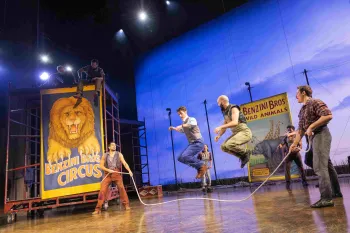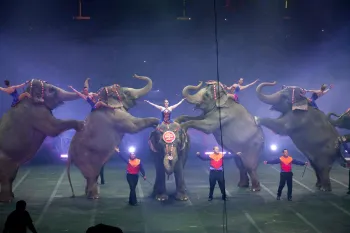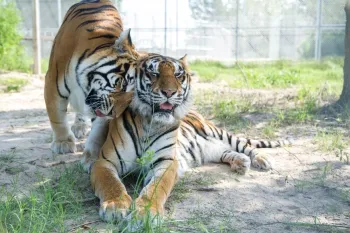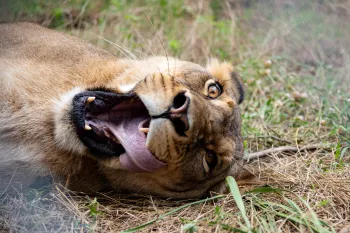Earlier this year, in April, I wrote about Viola, an elderly captive elephant who escaped from a circus in Butte, Montana. She wandered through traffic, in front of a casino, and paused on a residential lawn. Videos show handlers with bullhooks—a tool used to hit and inflict pain on captive elephants to intimidate them—chasing and then corralling Viola in the busy downtown, capturing her and bringing her back to the circus.
This was not her first time running from her captors, and it was not the first time she had to be caught and brought back to captivity. I noticed that some viewers of the footage even remarked that they didn’t realize elephants were still being used in circuses. Their surprise at the continued existence of these archaic “performances” felt like a moment of triumph, even amid the hopelessly sad story of Viola’s third escape. The norms have so drastically changed since the time I was a child. And these changes are reflected in, and in the best cases furthered by, popular culture.
Join us in calling on Shriners International to adopt an animal-free circus policy.
I had Viola in mind this week because I traveled to New York to briefly share a Broadway stage (something I never thought I’d be able to say!) with some of the cast members of Water for Elephants, a musical based on the 2006 novel by Sara Gruen, for a “talkback” panel discussion that followed the show. Animals are central characters to the Water for Elephants story, which is set in a traveling circus during the Great Depression. The story clearly resonates widely with audiences. Joining me were Wade McCollum (who plays Wade, a circus worker with the fictional Benzini Brothers’ Most Spectacular Show on Earth), Samantha Gershman (various roles/Rosie the elephant) and Alexandra Gaelle Royer (Agnes the orangutan), and our discussion centered around the complex relationship human beings have with animals and how and in what ways we bear responsibility for their fates, especially those animals whose daily lives are filled with cruelty dealt out by human beings.

The HSUS
Advocating against the use of wild animals in circuses has personal meaning for me, as I will never forget my experience of attending Ringling Bros. and Barnum & Bailey Circus when I was 7 years old. My second-grade class took a field trip to see the “greatest show on earth.” The night before the trip, I was so excited in anticipation of seeing the elephants and tigers that I could barely sleep. But when I actually saw these animals the next day, forced to perform to awestruck, applauding crowds under the threat of whips and prods, I was shocked by how dismal and harsh their lives were. This was the first time I realized that just because something is common practice, doesn’t mean it is right. I realized that wild animals should never be in situations in which they’re unable to express their natural behaviors. This realization has motivated me in my work for animals my whole life.
There has been immense progress since then: 11 states and nearly 200 cities and municipalities have restricted the use of wild animal acts—most recently, Massachusetts and Maryland joined in this forward momentum for animals. We are working towards a future where no animals are used in circuses by pursuing a state-by-state and municipality-by-municipality legislative strategy—until there is no show anywhere in the U.S. that exploits animals for entertainment.
As for this show, Water for Elephants is remarkable, not least for its use of elaborate puppets in place of the wild animal characters, including Rosie the elephant and Agnes the orangutan, something the film adaptation—quite sadly—failed to do. This kind of innovation is exactly what audiences should marvel at because it shows how animals can be central to a performance as characters without actual animals being so badly taken advantage of for the sake of spectacle.
It’s so important to think about our relationships with animals and our responsibility to protect them, and to talk about these issues in public forums. It was a pleasure to be given such an opportunity on Broadway, and it reminded me of how critical it is that we continue to bring our advocacy for animals of all kinds everywhere we can, from the New York stage to the halls of power.
Join us in calling on Shriners International to adopt an animal-free circus policy.
Follow Kitty Block @HSUSKittyBlock.




